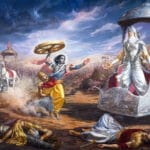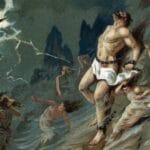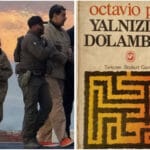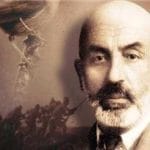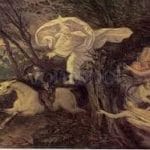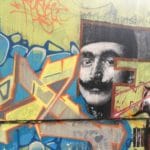Abstractions regarding the structure of societies certainly do not cover the whole of reality. Yet, every form of abstraction aids in understanding the most critical and dominant aspects of phenomena.
Abstracting and generalizing the characteristics of Turkish society, albeit with exceptions dependent on time and conditions, will facilitate grasping its most dominant attributes. This effort includes correctly identifying and critiquing the features shaped by historical and social conditions. This critique was the fundamental dynamic of transitioning from military-agricultural systems to the industrial era and subsequently to the information age in the modern century.
Since the Tanzimat reform period, the critique of society has also produced counter-reactions, generating a conservative discourse based on the defense of the old. The two-hundred-years-old conflict between the westernist-innovative segment and the status quoist conservative segment had produced a society that was physically and mentally tired and discouraged, and had perpetuated the reflex of a statists that constantly worried about security and survival. However, development and progress could be possible not with this negative state and societal characteristic but within a more self-confident, free, and critical habitat.
One way or another, Türkiye has spent the last two hundred years in this chaotic turbulence, sometimes advancing, sometimes falling, but sacrificing many victims. The smartest children of society were sacrificed by policies that were the product of excessive security concerns, when in fact there were very simple solutions. National resources were squandered in internal conflicts, real or manufactured. Intellectual accumulation was consumed by being thrown into futile ideological wells in these absurd contradictions and conflicts. At this juncture, no lessons have been learned, and society is stuck idolizing a specific historical moment, deifying it, and warring over its antecedents or successors.
The state and various ideological, ethnic and religious organizations and movements that seem to be opposed to it but are actually a reverse imitation-copy of it, have all together turned the country into a huge pagan-idolatrous pantheon. In this pantheon filled with gods, idols, sacred figures, immortal leaders, savior messiahs, taboo concepts, fetish words, and idols made of halva, paper, and clay, where everyone forces others to worship their own god but in truth no one truly believes in anything, everything that is ‘real, truth, justice, right, authentic, original, and universal’ has become merely material, merely a sacrifice.
Stopping this massive destruction should be the most important intellectual effort today. All pagan ways of, all false concepts of contradiction and conflict, all styles of responsible advocacy that lead to this destruction must be thrown away.
In this context, first and foremost, the technique of critical thinking must rise to the level of intellectual charisma and dominate all compartments of the state and society. Without forming a new habitat where all forms of idolatry are disdained, and concrete truths and genuine goals are elevated, Türkiye will miss the new century as well, once again sacrificing all the positive opportunities that history and geography offer, to these pointless and unnecessary conflicts.
We can exemplify the critical perspective we advocate by examining the critique of society and evaluating this critique as a positive dynamic for development.
We see the army-nation, heterogeneous culture and thought-frozen character of Turkish society, with all its ethnic-religious-sectarian diversity, as almost a common national trait. These characteristics can be interpreted as the source of many problems, as well as the possibility of many solutions.
Military Nation: Commitment to Power, Authority, and Status
Ibn Khaldun states that every society has its unique character, disposition, and moral structure. Categorizing societies into two main types, urban and nomadic, Ibn Khaldun describes Turks as “a nomadic and military people.” Indeed, even today, many sociologists recognize “military nation” as the prevailing characteristic of Turkish society. The “military nation” trait implies an inclination toward power, authority, and hierarchy rather than mere combativeness or aggression. Throughout history, societal organization in Turkish society has been constructed and operated within the framework of these three concepts. The fact that the Turkish people have dominated other ethnic and religious elements since their settlement in Anatolia, and that the new social structures created have a hierarchical feature organized according to certain statuses under a strong authority, is a natural expression of this character.
Ahmet Mithat Efendi, one of the New Ottomans who were the intellectual movement of the Tanzimat period, summarizes this character as follows when describing the society’s incompetence in trade and art: “History shows us that our earliest emergence was as a military nation, and while we have demonstrated considerable skill in certain industries—some of our enterprises even extending as far as parts of the Mediterranean coast—these achievements have always been more the work of our non-Muslim members than of our Turkish and Muslim segments. If we consider the proportion of the Muslim military elements within our nation and compare it to the number of soldiers we have historically mobilized during famous events, it becomes evident that until quite recently, and even today, we are a nation considered wholly military. Indeed, the saying, ‘A Muslim who is not affiliated with one of the military classes—Janissaries, Sipahis, or others—is not a true Muslim,’ has been a widely accepted truth. Yet the progress of arts and commerce is only possible through peace, even perpetual peace, and our years spent in peace have been exceedingly few.” (Ahmet Mithat, Economic Politics, as quoted by Şerif Mardin, Political and Social Sciences, İletişim Publishing, 1992, p. 92)
Beyond this national character, the army is revered by the public as the “prophet’s hearth” and the essence of the state. It is the guarantor of existence, continuity, the secure homeland, and the permenant nation. The arrival and settlement of the Seljuk principalities and the Ottoman principality in the region, their assumption of the role of Islam’s sword, and their subsequent establishment of political hegemony were all achieved through the spirit of holy war and conquest. This warrior tradition continued even during the stages of state formation, and the main livelihood and occupation of the Muslim community had been confined to war and related professions. The Ottomans left scholarship, commerce, and craftsmanship to the non-Muslim groups. Perhaps for this reason, many historians underline the role of economic functioning under the control of the non-Muslim minority in dependence on the West as the reasons for the destruction in the last period of the Ottoman Empire. The roots of this dominant characteristic lie in centuries of life under a semi-military order. The special importance placed on and the loyalty shown to the state and military stem from this history. Contrary to the Western class societies that shaped by the wealth and stratified according to the wealth, a structure determined by power and status is dominant in Turkish society. As a matter of fact, it is a well-known historical fact that during the rise of the Ottoman Empire, the state structure and the army were first and foremost strengthened, and during the collapse process, the “correction” reflex -which still dominates every political environment- was first activated to save the state. This central role of the army, which represents the authority of the state and its power, has not remained a temporary situation created by the pressure of actual needs, but has become a powerful ideology that has permeated the social imagination. As a matter of fact, even during the single-party period when the Kemalist regime positioned itself effectively against the people with the aim of making so-called revolutions through the state and the army, the state and the army occupied the most respected and obeyed positions in the social imagination. Even the democratization process since the 1950s has not altered society’s inclination toward hierarchy or its obsession with status. Alongside the cult of leadership in political parties, every civil political organization has manifested itself as a structure of unquestioning loyalty and obedience to central (e.g., general chairpersons) and local (e.g., notables, landlords, sheikhs) status holders. This tradition of hierarchy and status continues to dominate, transforming status into a cult of the leader in nationalist movements and into cult of organization in leftist groups. Even among Islamist circles, a palpable inviolability is attributed to leaders within communities. The army-nation character has left the monopoly of social change to the centres that are powerful and official in the eyes of the people. The fact that many rebellions and uprisings that have occurred throughout history have failed and have been suppressed in a bloody manner has established in the people’s mentality the belief that the state, which is already sacred enough to “not be rebelled against”, is “invincible and indestructible.” This traditional social mentality still continues as “one cannot oppose the state, and anyone who does so will be crushed.”
In the last century, the bloody suppression of the rebellions of the republican period, the defeat of the leftism of the 60s and 70s, and the failure of the Kurdish movement of the 80s have all led to the reinforcement of this understanding. In contrast to these unsuccessful movements coming from below, even a bloody step towards change from the state – coups – has easily been successful. Kemalist reforms, the policies of the single-party CHP that are against the people, coups and the policies of change of the governments that still make the people pay all the bills have always been accepted and settled, except for silent grumblings. In fact, the psychology of supporting the powerful, which exists in every society, is more dominant and intense in Turkish society.
It is possible to describe the social structure of Türkiye with a schema shaped from the top (rulers, status holders, authority) down to the bottom (subjects, common people, the populace, the governed). In this schema, the center is positioned at the top, while the periphery lies at the bottom. This hierarchical structure largely reflects the unquestionable hegemony of authority and status (military and state) over the populace. Obedience (biat) to the center positioned above is both a religious and customary obligation. In Sunni jurisprudence, “Fitna is worse than killing,” and “It is obligatory to obey your leader, even if he is a tyrant.” Whether these jurisprudential rules originate from the religion itself is irrelevant; both the public and the state have internalized and accepted them as religious commands. The legitimacy of rulers—be they sultans, emirs, or commanders—derives from being successors of the Prophet’s caliphs, inheritors of the caliphate, and from engaging in jihad and holy wars. Obedience (biat) and loyalty to these figures are the duties of every Muslim. The state and the military are religious institutions, and the religion—Sunni Islam, which the societal majority practically believes and lives by—is inherently statist and militaristic. This formula applies to the relationship between Christianity and the Byzantine state in the Orthodox Eastern Roman Empire as well. Perhaps this religiosity is a prerequisite for the nature, legitimacy, and survival of the state in these lands. Soon after transitioning from nomadism to settled life, the Ottoman Principality forced other principalities to obey its political center and legitimized itself through victories. Of course, the power that defeats and subjugates rival powers, even if they are Muslim, inherits this legitimacy. In the Ottoman order, which was shaped as a military-agricultural state, the political center – the state – became the main determining focus in the change of society from top to down. This central characteristic of social organization ensured that societal transformation and regulation occurred under the monopoly of the center. Throughout Ottoman history, every action of the state was somehow legitimized on religious grounds. Even the innovations and reforms that began during the decline period were somehow based on Islamic justifications. In fact, any decision of the state comes into effect despite objections, and those who oppose it are massacred as traitors, rebels, and bandits. Because only the state is legitimate as an authority. As a matter of fact, the first Westernization trend was a path taken by the statist elites (soldiers, bureaucrats and intellectuals) in order to correct, renew and revive the state. British economics and French culture became a fait accompli of official change imposed on the whole society by these central elites. This cultural schizophrenia, which began with the Tanzimat process, among its many other effects, increasingly divided society, disrupted the balance between Muslim and non-Muslim elements, and damaged the harmony between the state elite and the people. Despite this, even at the end of the 19th century and the beginning of the 20th century, when it was clear that the collapse was inevitable, the desperate steps for change that came from the state – the Constitutional Monarchy – were accepted by the people.
The state’s unshakable existence in the eyes of society resembles the absolute obedience of soldiers to their commander. The state is the commander, and the people are the soldiers. The “military nation” character has fundamentally been shaped within the sociological framework of peasantry and nomadism. On one hand, this character signifies a knightly simplicity—an anonymous innocence untainted by commerce or urban life. But on the other hand, it also contains many negative qualities such as oriental cunning, nomadic corruption, peasant laziness and small town cunning. Many existing social and national traits reflect the dominance of this character. The fact that society is simultaneously selfish and alturistic, intolerant of one another and supportive of one another, hostile towards others and hospitable, etc. is the result of nomadic-peasant sociology being trained in a military discipline. In other words, these opposing qualities are the product of the forcibly produced combination of opposing causes. Taking a nomad or a villager against his will and forcibly making him a soldier, sending him to holy wars, glorifying him as a martyr if he dies, or a veteran if he survives… Outside of war, beating for objection, humiliating for obedience… The roots of the schizophrenic characteristics embedded in the genes of the Anatolian Muslim element must be sought in the historical and political conditions that impelled this population towards a purely military mission.
The characteristic codes of behavior that can be interpreted as worshipping power and authority have deep roots. Although many other reasons can be listed, in my opinion, the main reason is the difficult and painful history of the Mesopotamian-Mediterranean basin, especially the Anatolian geography. The people of Anatolia, in a peninsula where they lived for hundreds of years, were unable to go out to the open seas and did not know the high seas. In other words, it is a society that has not experienced the uncertainty and unforeseen dangers that exist in the oceans, but has not experienced the sense of freedom and the joy of constantly discovering new places. But in the landlocked geography, there is a classic life consisting of an environment of chaos and anarchy, full of endless and recurring conflicts between states, lords, pashas, bandits and armies. In such a geography, it is a vital priority to demand that the most powerful one ensure peace and order, that is, stability and tranquility; this is the fundamental reason for the attachment to power, authority and status. In other words, “either the state is in power or the raven is in charge”… The reality of the military nation is the source of the reality of the military state.
Heterogeneous/Multicultural Mosaic
Another characteristic of Turkish society is its heterogeneous cultural structure. It represents a cultural mosaic where vastly different and often contradictory traditions have come together and coexisted for centuries, ranging from ancient Mesopotamian/Anatolian civilizations and Mediterranean culture to Turkish nomadic culture, Islamic traditions, and Byzantine heritage. In Anatolia, there are 27 (or more, according to some sources) ethnic groups and over 10 different belief systems and sects. Besides, since the Republican era, many ideological/political movements such as Turkish and Kurdish nationalism, Kemalism, liberalism, socialism and Islamism have been able to have social supporters. This complex cultural structure consists of ancient and modern civilizations and ideologies, religions and sects, and ethnic traditions and customs, all coexisting and interacting with one another while maintaining some degree of independence. This structure, which can be reduced to two main segmentary cultures (Islamic and Western culture) that are dominant and determining (considering the current situation), has a key role in understanding and changing Turkish society. Because there is a different culture and tradition dominating every part of the country, and a single, homogeneous and standard understanding of people and society cannot be explanatory in such a society.
Beyond this general cultural map, numerous subcultures formed due to economic and social factors in metropolitan areas and rural regions can also be identified (e.g., elite, petite bourgeoisie, squatter, small-town, peasant, and worker cultures). This rich cultural mosaic would produce different cultural versions, in the form of Kurdish modernization as the country transitioned from an agricultural society to an industrial society in the east, and as neo-liberalism (post-industrial modernity) took hold in the west. The new forms that all of these will take with the developing Islamic social segments may lead to more different and interesting cultural combinations. This diversity is, of course, a product of the culture of coexistence fostered over at least two thousand years of shared history, from the Eastern Roman Empire to the Ottoman era. In contrast, massive geographical regions like Europe, Russia, and China demonstrate highly sectarian and alarming attitudes toward difference, foreigners, and immigrants. Even in an country of immigrants like the USA, racism based on the western white Anglo-Saxon protestant identity called WASP is still deeply dominant. In this sense, Türkiye’s pluralistic mosaic character is a source of societal depth and richness. The pluralistic social structure is, in one sense, a guarantee of the continuation of our historical tradition, which ensures the formation of a nation through the combination of differences. On the other hand, it carries the perpetual risk of civil war and conflict among societal elements due to uniform, fascist state policies that fail to manage this diversity.
The state memory, which has been stuck in the trauma of the Ottoman disintegration period in the last century, needs to look back at the Ottoman experience, which has been constantly growing for at least 600 years, constantly meeting and merging with new cultural and social elements, creating a symphonic common culture and identity.
Mental Laziness: Poverty of Knowledge and Inability to Think
Another dominant characteristic of Turkish society is what can be called mental laziness—poverty of knowledge and inability to think. Whether it is attributed to nomadic origins, the character of a military nation, or the fact that we have been intimidated and weakened under the tradition of oppressive rule, in our society there is generally very little tradition of acquiring knowledge, comprehending, expressing, and producing ideas. The reason why people were easily subjugated throughout the Republican period, oppression and injustice were not met with sufficient reactions, many policies that were contrary to the values of the people were legitimized and implemented, and as a result, a passive society directed from outside was not due to political reasons but also to the people’s ignorance, ignorance of knowledge and science, and lack of opportunities to learn. The ignorance of Islam as the most basic value and the lack of knowledge of objects, the universe and events have ultimately led the people to a character that allows them to be easily led astray by a number of empty slogans, symbols, promises and many superstitions and errors under the guise of sacred values. An interesting example; in the speeches made at the Committee of Union and Progress congress in 1916, it was stated that in the observations made among the soldiers sent to the front for the Greater Jihad, many soldiers did not know the basic information of Islam, even the name of the prophet, the five pillars of Islam, the sect they attached, etc., and that a new organization of religious affairs was needed. The first core of today’s Presidency of Religious Affairs was established upon the need mentioned after this congress. (Qouted in The Last Years of the Committee of Union and Progress, Nehir Publications, Istanbul, 1993)
In the early period of the Republic, since the institutions such as schools, colleges and universities that trained the ruling class were inadequate and the existing ones primarily served to elite segment of society, and also due to the insecurity created by changes in letters and costume, etc. and the reluctance of the majority to send their children to schools due to economic reasons, education became a luxury for the masses for many years. As a natural result of decades of being humiliated, pushed aside and oppressed, brain laziness still maintains its effect as a character trait passed down from generation to generation through genes. There is a social mental quality dominated by many current and concrete characteristics such as being fooled by the empty promises of political parties and leaders at every turn, running for decades by sacrificing blood and life in pursuit of cheap ideological slogans, easily falling into the traps of modern communication tools, the deterioration of the quality of the education system to the point of turning university into high school and high school into primary school, lack of reading habit and many more. Moreover, having to think in 500-600 words thanks to the language revolution has made it even more difficult to change this character.
Despite recent increases in schooling, media, and other sources of information, the persistence of mental laziness suggests a more structural problem. Historically, our region, filled with wars, migrations, massacres, famine, scarcity, and uprisings, shares a similar past with Europe. Similarly, in terms of religious beliefs, there is a resemblance in the sense of a dogmatism that answers all of a person’s questions and requires no further thought. Thus, looking to a painful history or dogmatic beliefs as the root of the problem is futile, as these same factors did not prevent Europe’s Enlightenment, industrial revolution, social changes, and advancements.
In my opinion, the fundamental cause of mental laziness is the grand, undeserved collapse of the Ottoman Empire. The social memory seems unable to accept that a disintegration process spanning almost two hundred years ended with a great resistance put up in World War I. This painful scene is a defeat that both should not have happened and is still not believed to have happened, and is undeserved. Moreover, what is left from this glorious finale – the Republic – seems to have little value in the final analysis. In other words, the social subconscious did not accept the great defeat, therefore did not mourn it, and for the same reason did not take the state that was put in its place very seriously. It’s as if the collective subconscious has neither accepted the great defeat nor properly mourned it and, therefore, does not take the state established in its place seriously. The trauma of falling from the country of great sultans, mighty commanders, holy caliphs, from the great homeland that represents a huge imperial geography and from the magnificent state that is the protector, guardian, or ‘father’ of its subjects, especially Muslims, even in its worst situation, and being exposed to the order of small men, cowardly and cynical cadres, and incompetent traitors who attempt to discipline the people in the name of the West, has almost frozen the society in the past and paralyzed it. Poverty of knowledge and inability to think—mental laziness—is, in essence, an unconscious choice. The injustice of being thrown out of history, the cruelty of being forced into the current inadequacy, the shame of being the murderer and victim in a meaningless slaughter with people who have been friends and brothers, neighbors and comrades for a thousand years, in short, more than the enmity of the English, the French or the Russians – and that enmity is always the lifeblood of society – it is these inner destructions, this deep wound of not being able to bow down to the outcome determined by fate, destiny, perhaps God, but also not being able to object… Painful wounds that have not yet been confronted, overcome, or even dealt with… It seems that the only way that social memory could find to silently rebel against this fate was to abandon living and thinking. Moreover, it is as if this is a conscious silence, a chosen laziness, made with the awareness that the thousands of varieties of Western demagogy presented to him as thought are not even a shadow of that ancient knowledge, experience, wisdom and knowledge of thousands of years that even the most illiterate and poorest shepherds and grandmothers of these lands carry in the form of inner knowledge, intuition, proverbs and experiences in every cell of their body.
Only a hope for compensation for this unfair fate can untie this knot of laziness… A glimmer of hope about the future, about the state, about continuing the historical march where it left off, can enable society to renew its memory and think with a universal vision of civilization again. The campaign of the last fifty years to ‘reduce one’s food to educate one’s children’ symbolizes a hope in this regard. Because trusting children actually means preparing for the hoped-for future.
The dynamo that transforms negative characteristics into positive development: The Founding Idea Dynamic
Türkiye, with its basic social characteristics, perpetuates a system that is totalitarian, statist, and aimed at preserving the status quo and which both divides and obsoletes society. However, the same characteristics, with a different evaluation, can be transformed into a positive dynamic of development and integration in the new century. A state and order that is suitable for the social structure can produce a more advanced democratic experience by reinterpreting universal democratic values.
The character of a military nation can be the basis of a disciplined and principled state governed by the rule of law with sound ethical principles.
The heterogeneous cultural structure can be made the basis of pluralistic democracy, a symphonic and dynamic process of nation-building, a liberal and just social order, and agreement on a truly common set of social values.
Mental laziness, on the other hand, can be evaluated as a social brake and elimination dynamic against global developments whose background and intentions cannot be controlled, and on the other hand, as the opportunity to start many things from scratch, anew, and with more experience.
What truly matters is to think with a mindset of critical development, avoiding the two segmented and sectarian approaches of either mercilessly criticizing society or excessively glorifying it with exaggerated nationalism. Criticizing society and the state with destructive logic or, on the contrary, praising them with heroic exaltation is the easiest but most harmful attitude. These two attitudes, which have emerged against modernization at least since the Tanzimat process, have not been seen to be beneficial to date. Whether it is called Westernist-Easternist, progressive-reactionary, or rightist-leftist, starting to think with a new, comprehensive and higher perspective outside of these two extreme approaches is the first condition of a new intellectual curiosity and effort.
Türkiye must leave behind the dilemma that began with the Tanzimat period and continues today, moving into the new century with healthier intellectual efforts and products.

